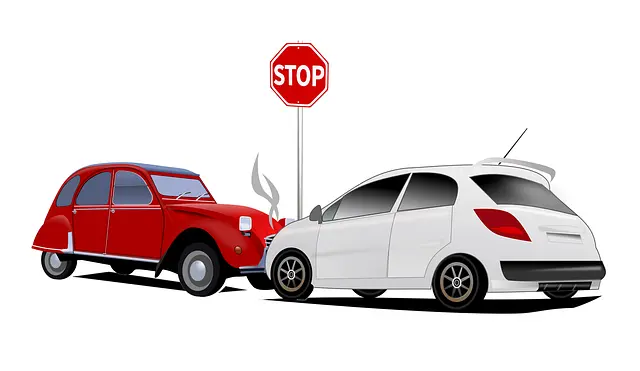
Types of Car Insurance Coverage
Car insurance typically includes several types of coverage, each designed to address different risks. The most common types are liability coverage, collision coverage, and comprehensive coverage. Liability coverage pays for damages and injuries you cause to others in an accident. Collision coverage reimburses you for damages to your vehicle resulting from a collision, regardless of who is at fault. Comprehensive coverage protects against non-collision incidents such as theft, vandalism, and natural disasters. Understanding these coverages will help you select a policy that meets your needs.
Factors Affecting Car Insurance Premiums
Car insurance premiums are influenced by various factors, including your driving history, age, location, and the type of vehicle you drive. Drivers with a history of accidents or traffic violations typically face higher premiums due to increased risk. Younger drivers often pay more because they are statistically more likely to be involved in accidents. Your location can also impact your premium, as areas with higher rates of theft or accidents may result in higher costs. Additionally, the make and model of your car, along with its safety features, can affect your insurance rates.
The Importance of Comparing Quotes
When shopping for car insurance, it’s essential to compare quotes from multiple insurers to find the best deal. Insurance rates can vary significantly between companies, so obtaining quotes from several providers can help you identify the most cost-effective option. Online comparison tools make it easy to gather quotes and compare coverage options. Additionally, consider factors such as customer service, claims handling, and policy features when evaluating different insurance providers. Taking the time to compare quotes can help you save money and find a policy that offers the right coverage.
Understanding Deductibles
A deductible is the amount you agree to pay out-of-pocket before your insurance coverage kicks in. Choosing a higher deductible can lower your monthly premium, but it also means you'll have to pay more if you need to make a claim. Conversely, a lower deductible results in higher premiums but less financial burden when you file a claim. It's important to choose a deductible that balances affordability with your ability to cover costs in the event of a claim. Evaluate your financial situation and driving habits to determine the most suitable deductible for your needs.
The Role of Discounts
Many insurance providers offer discounts that can help reduce your premiums. Common discounts include those for safe driving records, multiple vehicles, bundling with other insurance policies, and having certain safety features in your car. For example, if you have a clean driving record, you may qualify for a safe driver discount. Bundling your car insurance with home or renters insurance can also lead to significant savings. Be sure to inquire about available discounts when obtaining quotes to maximize your potential savings.
Policy Exclusions and Limitations
Understanding the exclusions and limitations of your car insurance policy is crucial to ensuring you have the coverage you need. Common exclusions include damages resulting from intentional acts, racing, and certain types of wear and tear. It's also important to be aware of coverage limits, which specify the maximum amount your insurer will pay for a claim. Review your policy carefully and ask your insurance provider about any terms or conditions that may affect your coverage. Being informed about exclusions and limitations will help you avoid surprises when you need to file a claim.
The Claims Process
Filing a claim is an important aspect of using your car insurance. The process typically involves reporting the incident to your insurance company, providing necessary documentation, and cooperating with any investigations. Promptly report any accidents or damages to your insurer to ensure a smooth claims process. Keep detailed records of the incident, including photos, police reports, and repair estimates. Understanding the claims process and knowing what to expect can help you navigate it more effectively and ensure that your claim is handled efficiently.
Renewing Your Policy
Car insurance policies typically have a renewal period, during which you have the opportunity to review and adjust your coverage. It's important to review your policy before renewal to ensure that it still meets your needs. Consider any changes in your circumstances, such as a new vehicle, changes in driving habits, or shifts in your financial situation. Compare your current policy with quotes from other providers to determine if you could benefit from better coverage or lower premiums. Renewing your policy with the right adjustments can help you maintain optimal coverage and save money.
The Future of Car Insurance
The car insurance industry is evolving with advancements in technology and data analytics. Innovations such as telematics devices, which monitor driving behavior, and usage-based insurance models are becoming more common. These technologies allow insurers to offer personalized premiums based on individual driving habits, potentially leading to lower rates for safe drivers. Additionally, the rise of autonomous vehicles and new safety features may impact the future of car insurance. Staying informed about industry trends and emerging technologies can help you make better decisions about your insurance coverage.
Car insurance is an essential aspect of responsible vehicle ownership, providing protection against various risks and financial burdens. By understanding the different types of coverage, factors affecting premiums, and tips for choosing the right policy, you can make informed decisions that ensure you have the protection you need. Regularly reviewing and adjusting your policy, staying informed about industry trends, and taking advantage of discounts can help you maintain optimal coverage while managing costs effectively.
